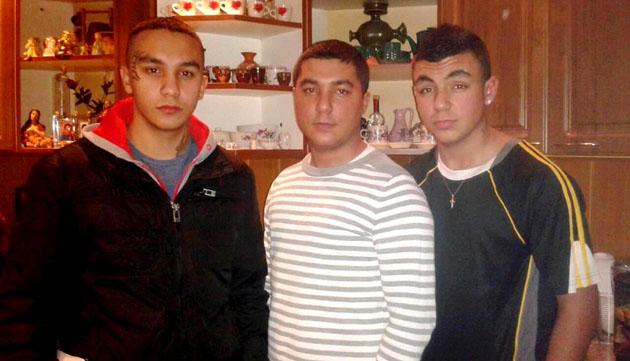Roma entrepreneur offers village free aid after Czech floods, is refused

Entrepreneur Jaroslav Herák has offered the village of Rudník near Trutnov assistance after the recent floods there. He offered the use of his construction firm’s technology and 10 people to run it, plus more people to help with the cleanup, all for free.
Herák lives in Trutnov and owns a civil engineering firm. He employs both Romani and "white" people, but his offer of help was refused.
I wanted people from the majority to know that Gypsies are not indifferent to the misfortunes suffered by others during the floods
"I first offered the assistance by telephone and the mayor accepted it. When I showed up in person at the scene, my help was refused by the municipal representative there, who said they had had ‘bad experiences’, but wouldn’t say with whom. He said they had already resolved everything, they had contracted with other firms, they had volunteers, etc. The feeling I had was that my offer of help was not accepted because I am Roma. I got angry and sent him a text message telling him that," Herák told news server Romea.cz.
Why did Herák offer to help? "The majority society mostly talks about Romani people in a negative sense. I wanted people from the majority to know that Gypsies are not indifferent to the misfortunes suffered by others during the floods," he explains.
Mayor of Rudník Aleš Maloch told news server Romea.cz that Herák was rejected because the village had enough volunteers. When asked why his offer of assistance was accepted on the phone and only rejected when he turned up in person, the mayor answered: "I don’t know, it was the vice mayor who spoke with him face-to-face."
According to Vice Mayor Jiří Stuchlík the interaction with the Romani entrepreneur took place differently. "Mr Herák insisted on a personal meeting, and I explained to him that I didn’t have work for his people because many people were interested in helping. I feel blackmailed by the text message he sent after our meeting, where he indicates that my decision was racially motivated. That offends me. If it seemed that way to him, those feelings are his only," Stuchlík told news server Romea.cz.
"If I had to summarize it, they welcomed the assistance offered by phone, but during the personal meeting, they told me they had had ‘bad experiences’ without saying with whom, and that they had contracted with other firms. I was offering to help them for free and they still refused. My impression was that it’s because I’m black, because it doesn’t make sense any other way. If they have contracted firms and the village has enough money to pay them, then they can go ahead and pay for the service. I’ll have less to worry about. I just wanted to show that we are not indifferent to the fate of others," Herák responded.
The businessman also sees the affair in the larger societal context. "It is constantly being pointed out that Romani people don’t go to work, but when we offer a helping hand, they refuse us. How are we to explain this? How are Romani people supposed to go to work when they can’t get any work – not only for wages, but not even for free? Are we all just supposed to lay down and die?" Herák asked.